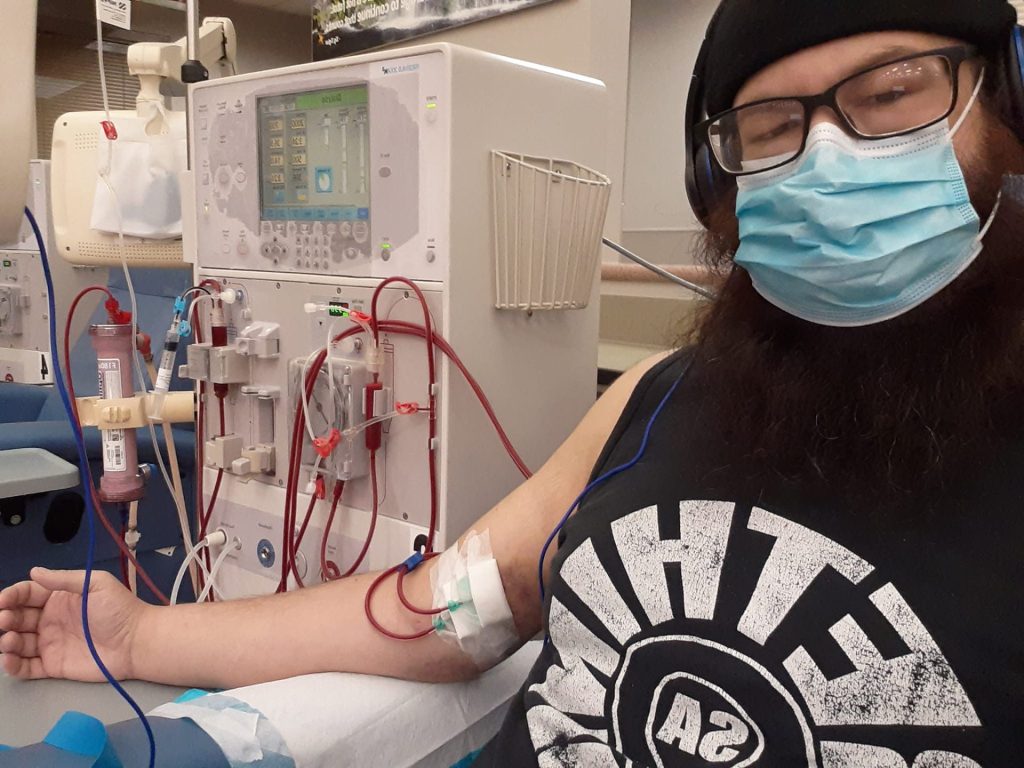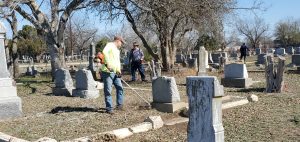
You may not hear it enough so let’s start by saying it again. Kidney health is extremely important. Renal Failure affects roughly 750,000 Americans every year and there are not enough organ donors to fill that need.
One of those Americans is Jace Welsh, a native Texan born in the heart of the panhandle, and a resident of San Antonio for over 20 years. A graduate of Churchill High School, he had his first kidney transplant in 2003 thanks to a benevolent sister. Th e doctors believed with half the donating kidney clotting off it would only last a few months, it lasted 18 years. Then, after being rear ended by a drunk driver and hospitalized, the kidney gave out.
How has renal failure affected you?
He’s tired not for lack of sleep although insomnia is a side effect. No energy. Loved going to the gym, lifting heavy weights. Food has no flavor. Everything tastes like Styrofoam. Spicy isn’t spicy. An unending thirst you can’t quench. When your kidneys don’t work you can’t pee. When you can’t pee, you can’t drink too much. You must limit your food and liquid intake. Even paying attention to condiments, gravies, juicy fruit, even cuts of beef. Cheese even adds to your liquid intake.
What is the most challenging as a dialysis patient? Sitting in a cold plastic chair in a cold room for 4 hours a day, 3 days a week. Keeping your arm still with fourteen-gauge needles in it is painful, even with lidocaine numbing it. Uncomfortable, boring, depressing. Tries to sleep through the process but you must be awake enough not to fl inch or move your arm which could cause serious trauma. Maddening. Miserable.
How did you figure out something was wrong this time? Regular doctor’s visits & routine blood work. Sodium, Potassium and Phosphorus are key electrolytes. Phosphorus kept building up in my system. Two-month checkups turned into monthly. Monthly turned into weekly check-ups to see if anything was getting better and it wasn’t.
Can you give us an idea of the dialysis process? Temperature check first. Mask up-COVID. Weight check to determine your fluids before and aft er. Your weight determines how much will be removed. They check your standing and sitting blood pressure. A tourniquet is placed above the fistula, the area is wiped down where 2 needles the size of #2 Pencil lead will access the bloodstream. One is the arterial needle which sends blood full of toxins which have accumulated into the dialyzer while the second returns the purified blood into the patient. This happens at roughly a cup at a time.
Jace Welsh confessed “When I go in, I feel like garbage. When I leave, I’m absolutely drained.” Void of energy, lethargic. Grumpy and wants to go home and go to bed.
Jace is desperately searching for a donor.
How do you handle the hard days? The hardest days are Mondays. I just go home. Sometimes I don’t even make it to taking off my boots. I end up passing out on the bed. It’s taxing, incredibly taxing both physically and mentally because it’s depressing walking in there because you’re seeing other people going through kidney failure like you and some of them are diabetic and missing limbs from diabetic neuropathy others aren’t. I was told I am the youngest person at dialysis. I’m only 38. Most of the other patients are grandparents or in their 50s.
You have a lot more life worth living. “Yeah. I have my mom to worry about. She has no one else to take care of her. She lives in a nursing home, but she needs help with menial tasks, filling out forms, running errands for her, taking her to see her grandson and if anything happens to me, she’ll have nobody.” (Jace is his mother’s wings)
How can our readers help you? “They can call or contact the Methodist Transplant Specialty Hospital and ask a coordinator about getting tested to see if they can donate. They are very thorough. My insurance pays for your half of the surgery. Th e work up to surgery and the recovery. Call Methodist Live Donor SATX 2105754483 or 18447463338 [tell them] I’m interested in donating a kidney to Jace Welsh, his birthday is July 17th, 1983. They can have you come in and get evaluated at no cost to you. Includes a physical, some blood work, a questionnaire. It doesn’t take long. Even if you’re not compatible with me, and you still want to donate, I’m listed with Texas Organ Sharing Alliance. TOSA can use your kidney as collateral to find a matching donor. When you find a kidney, what are your plans for the future? I’ll continue my charity work and advocate for organ donation. I’ll be there for my friends and family. Living my best life while leaving the world a better place and helping more people than I can if I’m sitting in a chair 12 hours a week.
Imagine everything you can get done with that time.





